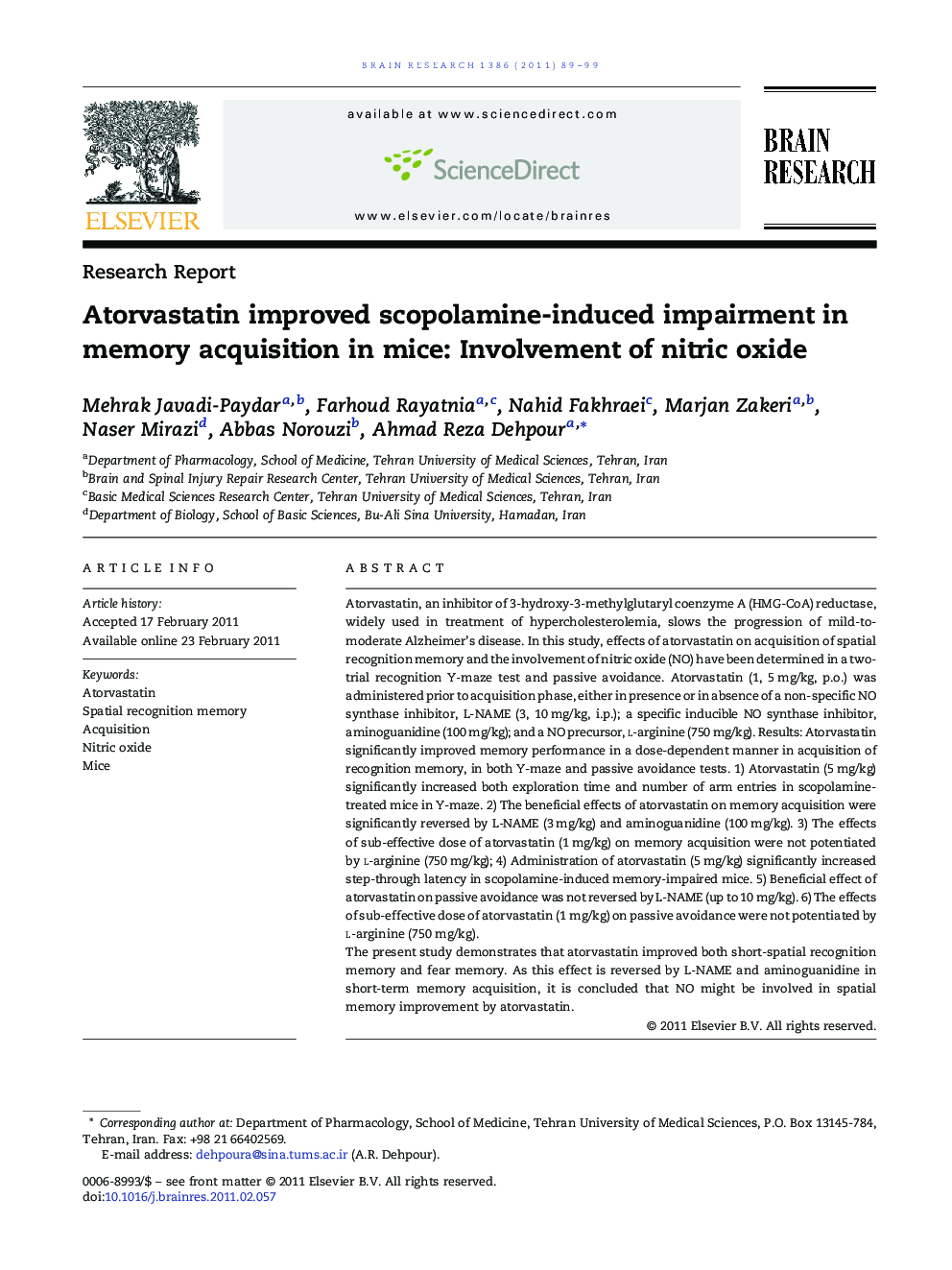| Article ID | Journal | Published Year | Pages | File Type |
|---|---|---|---|---|
| 4326057 | Brain Research | 2011 | 11 Pages |
Atorvastatin, an inhibitor of 3-hydroxy-3-methylglutaryl coenzyme A (HMG-CoA) reductase, widely used in treatment of hypercholesterolemia, slows the progression of mild-to-moderate Alzheimer's disease. In this study, effects of atorvastatin on acquisition of spatial recognition memory and the involvement of nitric oxide (NO) have been determined in a two-trial recognition Y-maze test and passive avoidance. Atorvastatin (1, 5 mg/kg, p.o.) was administered prior to acquisition phase, either in presence or in absence of a non-specific NO synthase inhibitor, L-NAME (3, 10 mg/kg, i.p.); a specific inducible NO synthase inhibitor, aminoguanidine (100 mg/kg); and a NO precursor, l-arginine (750 mg/kg). Results: Atorvastatin significantly improved memory performance in a dose-dependent manner in acquisition of recognition memory, in both Y-maze and passive avoidance tests. 1) Atorvastatin (5 mg/kg) significantly increased both exploration time and number of arm entries in scopolamine-treated mice in Y-maze. 2) The beneficial effects of atorvastatin on memory acquisition were significantly reversed by L-NAME (3 mg/kg) and aminoguanidine (100 mg/kg). 3) The effects of sub-effective dose of atorvastatin (1 mg/kg) on memory acquisition were not potentiated by l-arginine (750 mg/kg); 4) Administration of atorvastatin (5 mg/kg) significantly increased step-through latency in scopolamine-induced memory-impaired mice. 5) Beneficial effect of atorvastatin on passive avoidance was not reversed by L-NAME (up to 10 mg/kg). 6) The effects of sub-effective dose of atorvastatin (1 mg/kg) on passive avoidance were not potentiated by l-arginine (750 mg/kg).The present study demonstrates that atorvastatin improved both short-spatial recognition memory and fear memory. As this effect is reversed by L-NAME and aminoguanidine in short-term memory acquisition, it is concluded that NO might be involved in spatial memory improvement by atorvastatin.
Research highlights►Atorvastatin improved acquisition of both short-spatial recognition and fear memory. ►This improving effect was significantly reversed by NOS inhibitors in spatial memory. ►l-arginine did not potentiate spatial memory acquisition of atorvastatin. ►NOS inhibitors and l-arginine did not affect atorvastatin effect in fear memory. ►Nitric oxide is probably involved in spatial memory acquisition by atorvastatin.
